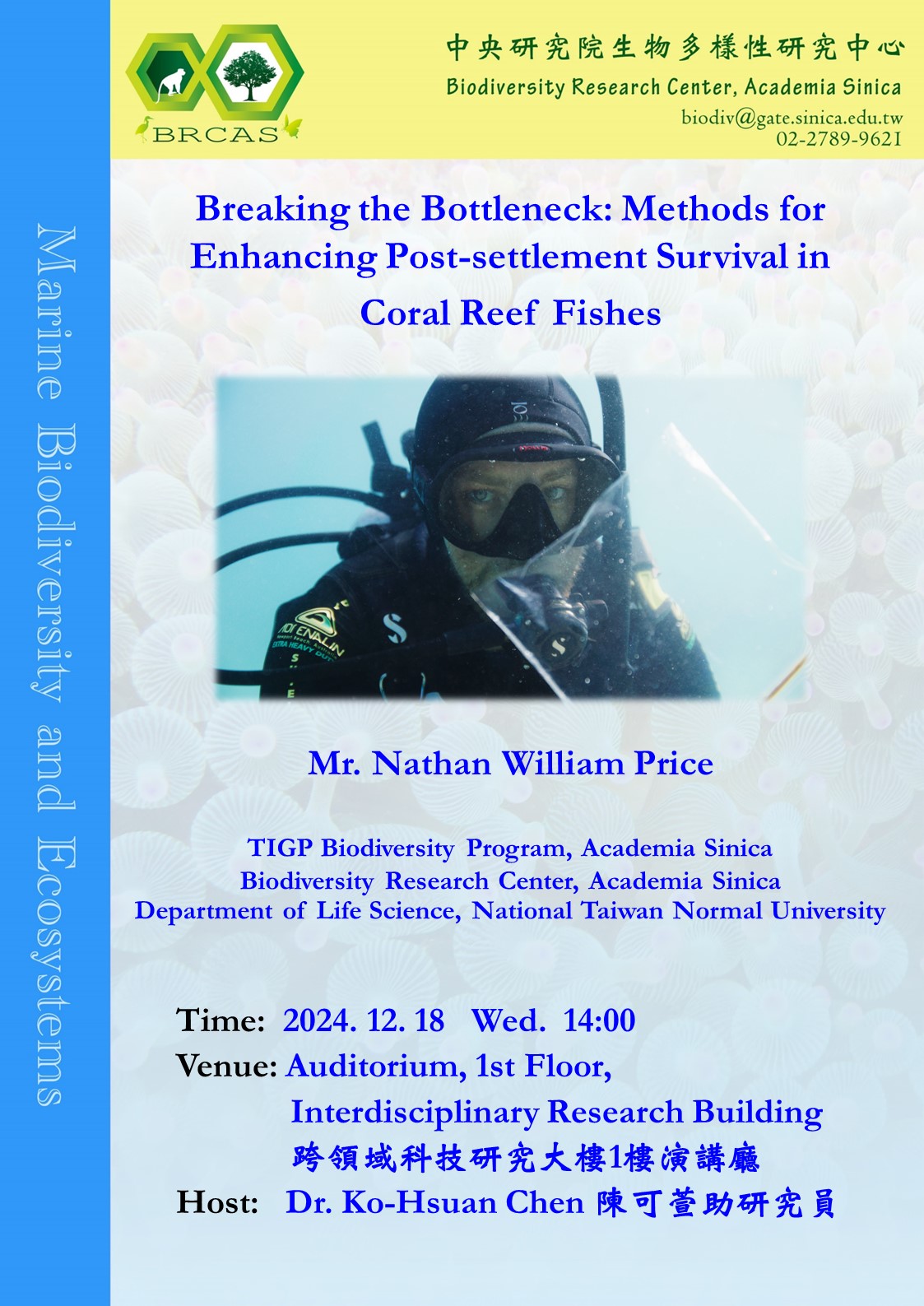- Lectures
- Biodiversity Research Center
- Location
Auditorium, 1st Floor, Interdisciplinary Research Building
- Speaker Name
Mr. Nathan William Price (TIGP, Academia Sinica)
- State
Definitive
- Url
Abstract
Larval coral reef fishes face extremely high predation rates upon settling onto the reef after their open-water phase. This predation "bottleneck" significantly limits the number of new individuals joining the adult population, thereby affecting population structure, community composition, and ecosystem processes. Understanding and mitigating this mortality bottleneck is crucial for the conservation and resilience of coral reef fish populations. Post-larval capture, culture, and release (PCCR) is a conservation method designed to address this issue by capturing larval fish immediately before settlement, culturing them in controlled environments, and releasing them back onto the reef. While PCCR has shown promise in enhancing survival rates, several factors, including the optimal duration of captivity and the timing of release, remain unknown. Extended captivity in PCCR programs can lead to increased risks of disease, in-tank mortality, and stress, as well as negative behavioural changes through domestication effects, which can impair the fishes' post-release survival. Additionally, predation risk for juvenile reef fishes fluctuates throughout the day, with reef predators exhibiting peak activity during crepuscular periods and nighttime. The timing of release may play a critical role in survival, as juvenile reef fishes quickly learn to recognize and avoid predators. Releasing them at a time of lower predation pressure could provide a vital survival advantage. The two experiments aim to 1) Identify the optimal duration of captivity that enhances post-release survival and minimizes stress and behavioural changes in juvenile reef fishes, and 2) Investigate whether releasing juvenile reef fishes in the morning, after a peak predation period at dawn, results in higher survival rates compared to afternoon releases. By assessing survival rates, body condition, behavioural responses, and predator activity patterns, this research will provide insights into effective, low-cost PCCR strategies that can enhance the resilience and recovery of coral reef fish populations.









 Home
Home

